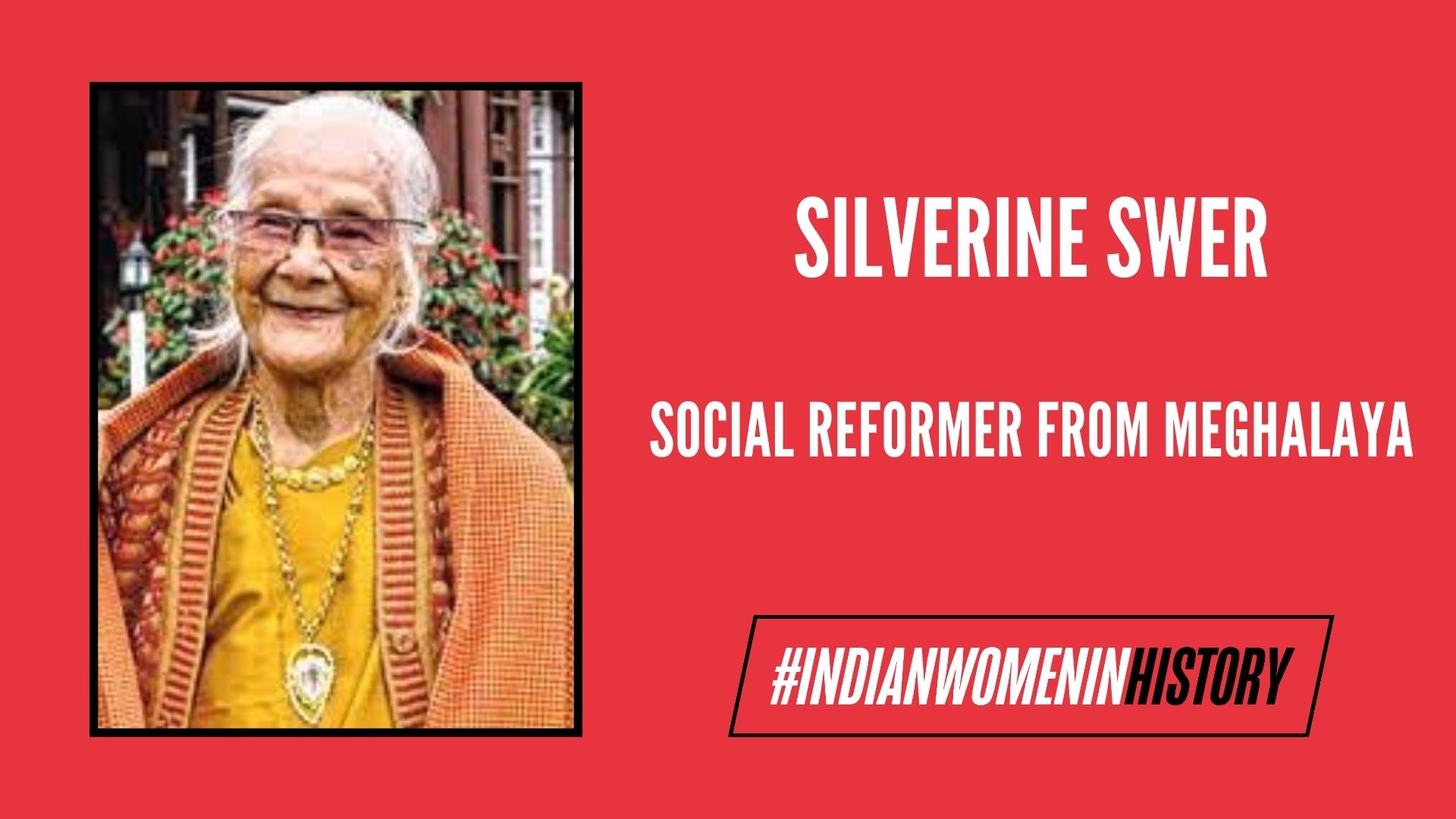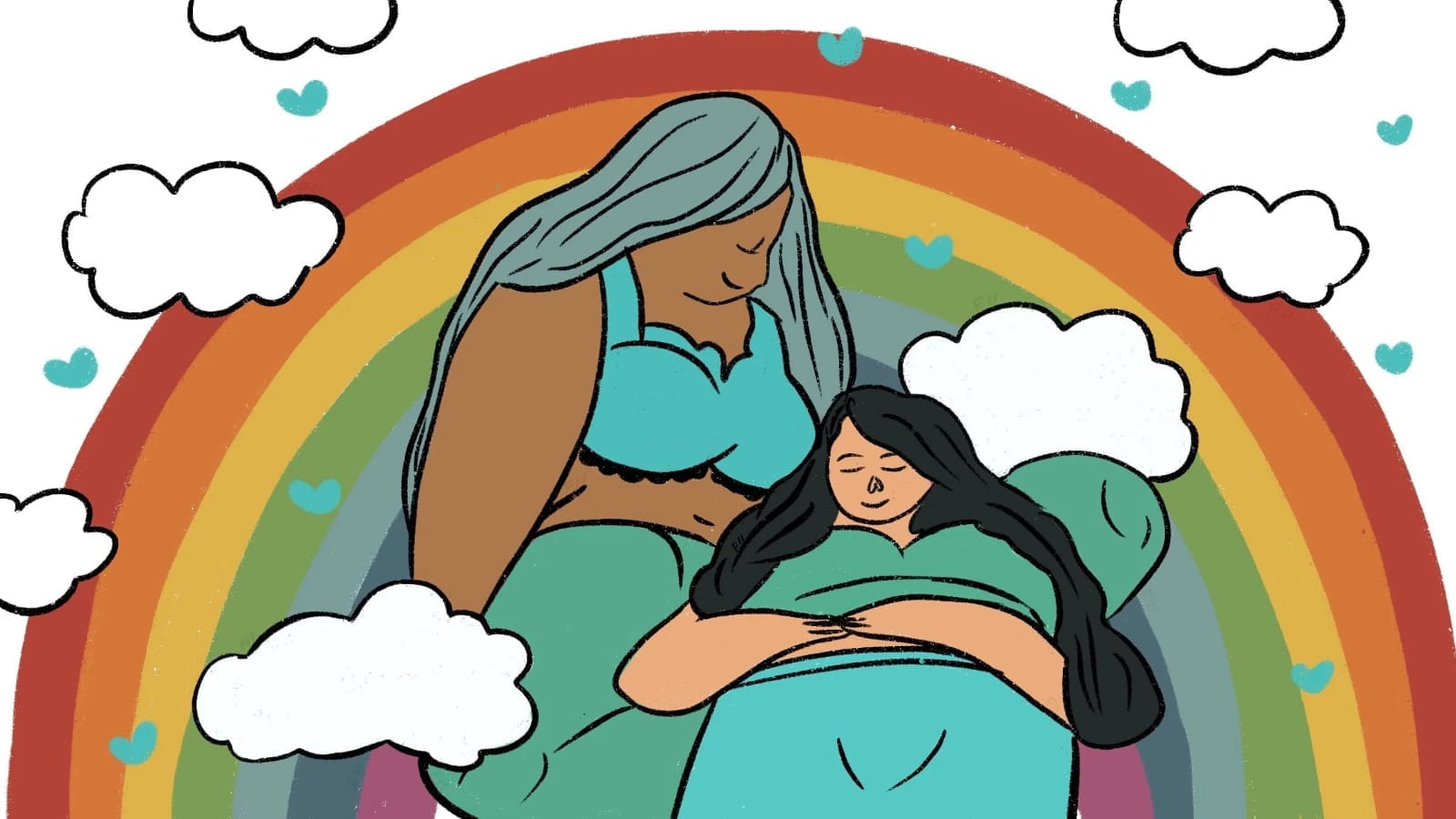A life that spanned over a century must have seen a lot. But Silverine Swer, at 103, lived a life that gave a substantial amount back to her country and community. Born to the Khasi community in Shillong, Silverine Swer was a social reformer in all senses of the word – by work, by vocation and by the passions that she nursed throughout her long life with vitality and verve.
She lived and worked in Shillong for several of her adult years. Touted as the oldest registered voter in the state of Meghalaya, she passed away in 2013, at the ripe old age of 103, having dedicated her life to improving welfare for women and girls in the North East.
Early Years
Silverine Swer, who was later fondly remembered as Kong Sil or elder sister, was born to Khasi Christian parents on 12 November 1910. She spent most of her childhood in Shillong, where she was born, before moving to Calcutta to attend university.
Silverine Swer’s tryst with education
Her own roots in a strong and holistic education influenced Swer’s life work towards the community and the country as a whole, quite significantly. As an environmental activist, as a social reformer and as an educationist, Swer’s ability to affect change lay in the power of education, knowledge and discourse. A year after she began teaching at the Welsh Mission Girls School – where she herself studied as a child – she was sought out to act as a trainer and advisor of the Girl Guides Movement in 1938, an endeavour that she continued to strive for and establish throughout her lifetime.

Silverine Swer remained actively involved with the training, teaching and modelling that shaped the formative years of the lives of young women. Perhaps it was the depravity and turmoil of the war years leading up to independence, or her own strongly established foundation in a holistic education, which grounded her belief that true empowerment for peaceful co-existence could only come with education and awareness.
Social activism in the Independence era
Silverine Swer lived through the struggle that went into forging India as the country it is in the contemporary context. In bearing witness to the Gandhian spell that enthralled the country, Swer stepped in with women’s initiatives of her own to substantiate the momentum with which Swadeshi had been set in motion at the time.
With the entire North East plunged into tumult and tension, Swer took upon the mantle of food rationing in the years leading up to and after Independence, a post that was officialized by the British Indian government in place in 1944. They made her the Assistant Controller for Rationing. She held the post for the better part of the final independence struggle era in Meghalaya before resigning to return to her vocation as a secondary school teacher.
Also Read: Five Historical Women Leaders From North East India
Her life would have continued as a teacher had a serendipitous encounter with N. A. Rustomji, the Advisor to the Governor of Assam on the North Eastern Frontier Agency (NEFA) not dictated otherwise. Silverine Swer was offered the position of Chief Social Education Officer of NEFA at their Palsighat office. She took on the post with the same tenacity and grit with which she approached her other ventures.
Her belief in the power of social change stemmed from a fundamental reconstruction of ideology. Following her stint with the NEFA, Swer returned to her hometown of Shillong to espouse the Indian rendition of the Moral Rearmament (MRA) in 1938. She worked mainly under the Good Will Movement of the Moral Rearmament. The MRA, as it was popularly known, was an international spiritual movement spearheaded by Frank Buchanan which opposed the military armament that had sprung up in Europe recovering from the Holocaust.
In applying the principles of spiritual reconstruction to the developing North East, Swer sought to carve out a new identity for her community, which was not confined to only the war and conflict occurring there. Its clarion call for a ‘hate-free, fear-free and greed-free world’, reflected upon Swer’s own integrity of character which she relied upon to ensure integration within social communities in Shillong.
The blossoming influence of Silverine Swer
Throughout her life, Swer was recognized for her contributions towards creating a more egalitarian society within India. When she chaired the International Year for Women in 1975, Silverine Swer became the face of a campaign that India itself didn’t realize it would need well into the 21st century.

Throughout the later part of her life, Swer remained the Meghalaya State Commissioner for the Girl Guides Movement and heartily championed their cause as a medium for responsible social education for girl children in India, for which she also received a Silver Elephant Medal of the Bharat Scouts and Guides.
Her contributions as the Assistant Controller for Rationing won her the Kaiser-I-Hind medal under the aegis of the British Government. Her industry in social service began with her winning the Patogan Sangma Award and catapulted when she was awarded the Padma Shri, India’s fourth highest civilian honour, in 1990.
Silverine Swer’s life story personalizes the struggle of a country – ultimately the salvation of every country lies in the social service which must be kept alive at the heart of every individual. Swer stands as an example of just how moving a life dedicated to the welfare of others can be.
Also Read: Kamini Roy: Poet, Teacher And The First Woman Honours Graduate In British India
About the author(s)
Nose in a book. Head in the clouds. And a plethora of other commonplace phrases.




